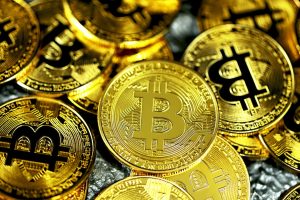The Role of Technology in Forex Trade Markets: Trading Automation and AI
The forex market is the largest and most liquid financial market in the world, with trillions of dollars being traded on a daily basis. It is a decentralized market where currencies are bought and sold, and it operates 24 hours a day, five days a week. Forex trading has evolved significantly over the years, and technology has played a crucial role in this evolution. In recent times, trading automation and artificial intelligence (AI) have emerged as powerful tools in the forex trade markets.
Trading automation refers to the use of computer programs or algorithms to execute trades on behalf of traders. These programs are designed to follow predefined rules and execute trades automatically when certain conditions are met. Automation has become increasingly popular in forex trading due to its ability to eliminate human emotions and biases from the trading process. Emotions such as fear and greed can often cloud a trader’s judgment and lead to poor decision-making. By automating trades, traders can ensure that their decisions are based solely on logical and objective criteria.
One of the key advantages of trading automation is its ability to execute trades with high speed and precision. In the forex market, prices can change rapidly, and opportunities can arise and disappear within seconds. Manual trading may not always be able to capture these opportunities in a timely manner. However, automated trading systems can analyze market data in real-time, identify trading opportunities, and execute trades instantly. This can help traders take advantage of favorable price movements and maximize their profits.
Another benefit of trading automation is its ability to trade across multiple markets and time zones simultaneously. The forex market operates 24 hours a day, which means that trading opportunities can arise at any time. Automated trading systems can monitor multiple markets and execute trades across different time zones without any human intervention. This allows traders to access a larger pool of trading opportunities and increase their chances of making profitable trades.
Artificial intelligence (AI) is another technology that is revolutionizing the forex trade markets. AI refers to the development of computer systems that can perform tasks that normally require human intelligence, such as speech recognition, decision-making, and problem-solving. In forex trading, AI can be used to analyze vast amounts of market data, identify patterns and trends, and make predictions about future price movements.
One of the key applications of AI in forex trading is the development of trading algorithms that can learn and adapt to changing market conditions. These algorithms use machine learning techniques to analyze historical market data and identify patterns that can be used to predict future price movements. By constantly learning and adapting, AI-based trading systems can improve their performance over time and make more accurate predictions.
AI can also be used to develop trading strategies based on complex mathematical models and statistical analysis. These strategies can take into account a wide range of factors, such as economic indicators, market sentiment, and technical analysis indicators, to make informed trading decisions. AI-based trading systems can analyze these factors in real-time and adjust their trading strategies accordingly, which can help traders to stay ahead of the market and make profitable trades.
In conclusion, technology has played a significant role in the evolution of forex trading. Trading automation and AI have emerged as powerful tools that can enhance the efficiency and profitability of forex trading. Automation can eliminate human emotions and biases from the trading process, while AI can analyze vast amounts of market data and make predictions about future price movements. By leveraging these technologies, traders can increase their chances of making profitable trades and stay ahead of the ever-changing forex market.






